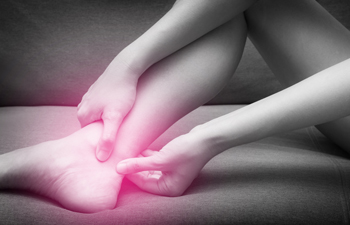
Achilles tendinopathy is a condition that affects the Achilles tendon, the large tendon at the back of the ankle that connects the calf muscles to the heel bone. It is often caused by repetitive strain, overuse, or sudden increases in activity, leading to pain, swelling, and stiffness. Athletes, particularly runners and those involved in high-impact sports, are at higher risk of developing this condition. To prevent Achilles tendinopathy, focus should be on exercises that strengthen the calf muscles, improve flexibility, and increase overall ankle stability. Eccentric strengthening exercises, which involve lengthening the tendon while under tension, are particularly effective in building tendon resilience. Additionally, gradual increases in activity levels, proper warm-ups, and wearing appropriate footwear can help reduce the strain on the Achilles tendon. Regular stretching, foam rolling, and cross-training can also prevent imbalances and reduce the risk of tendinopathy. If you have an Achilles tendon injury, it is suggested that you contact a podiatrist who can offer you treatment and relief solutions that are right for you.
Achilles tendon injuries need immediate attention to avoid future complications. If you have any concerns, contact one of our podiatrists of Fusion Foot and Ankle. Our doctors can provide the care you need to keep you pain-free and on your feet.
What Is the Achilles Tendon?
The Achilles tendon is a tendon that connects the lower leg muscles and calf to the heel of the foot. It is the strongest tendon in the human body and is essential for making movement possible. Because this tendon is such an integral part of the body, any injuries to it can create immense difficulties and should immediately be presented to a doctor.
What Are the Symptoms of an Achilles Tendon Injury?
There are various types of injuries that can affect the Achilles tendon. The two most common injuries are Achilles tendinitis and ruptures of the tendon.
Achilles Tendinitis Symptoms
- Inflammation
- Dull to severe pain
- Increased blood flow to the tendon
- Thickening of the tendon
Rupture Symptoms
- Extreme pain and swelling in the foot
- Total immobility
Treatment and Prevention
Achilles tendon injuries are diagnosed by a thorough physical evaluation, which can include an MRI. Treatment involves rest, physical therapy, and in some cases, surgery. However, various preventative measures can be taken to avoid these injuries, such as:
- Thorough stretching of the tendon before and after exercise
- Strengthening exercises like calf raises, squats, leg curls, leg extensions, leg raises, lunges, and leg presses
If you have any questions please feel free to contact our offices located in Fort Worth and Arlington, TX . We offer the newest diagnostic tools and technology to treat your foot and ankle needs.


